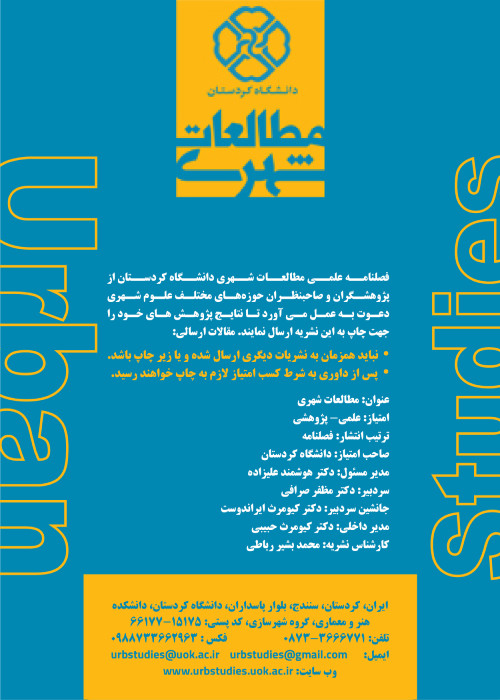Analysis of Institutional resilience structure for transition from crisis management to urban management resilience against earthquake (Case Study: Qazvin City)
The high rates of financial and human loss in natural disasters (particularly in recent decades) have led various countries and organizations to seek effective theories in that regard. Since 2005 (the Hugo Summit), the issue of resilience has been pursued seriously, addressing the idea of empowering cities to perform better in the event of an accident. Iran is a country where a large number of natural disasters occur, and the city of Qazvin is at constant risk of severe earthquakes, as indicated by research, due to the crossing of dangerous pressure faults in its northern part. In Iran, particularly in Qazvin, urban management has delegated responsibility for addressing disasters to a "crisis management headquarters." Given that the structure of the headquarters in Qazvin is similar to those of similar entities in cities with unsuccessful backgrounds of performance in addressing earthquakes in recent years, the main issue in this regard is how to change the structure of the headquarters so that it can perform more favorably upon earthquakes. This descriptive-analytical research considered the proposed headquarters structures and models as described in the UN documentations and those of countries having addressed such events successfully. Moreover, the variables and indicators examined in investigation of institutional resilience were identified. Qazvin’s crisis management headquarters was regarded as a dependent variable influenced by a number of independent variables, and its success depended on the conditions of those variables. In the analysis of the findings, the required factors were first identified according to the conditions of Qazvin through assessment of the variables and indicators using CVR (the content validity ratio). A survey was conducted of 30 urban planning experts, in which a total of 9 variables and 9 indicators were selected to obtain institutional resilience. A questionnaire was then prepared in the format of the Likert scale, where the questions were based on the tasks specified by the law for the different working groups at the headquarters and categorized on that basis, with the variable and the target index for each question specified. After a survey of 110 urban planning experts, the data were analyzed using SPSS. Using a Student’s t-test, the variables were assessed with different indicators for the headquarters under investigation. The results indicated a lack of concern for the 9 effective variables. Furthermore, a comparison of the structure of the headquarters to the models in use around the world demonstrated that it consisted of only two parts, including operating and administrative forces, unlike the successful models, which are composed of four main parts. It was also found that the above two departments of course need organizational reform. Thus, the headquarters needed to consider three measures to achieve institutional resilience. Firstly, the structure needed to be reformed to address the existing drawbacks. Secondly, the attitudes toward management needed to be changed from government to governance. Thirdly, equipment with new hardware and software technologies was needed for preparedness and prevention. The required measures in the above three areas should be taken simultaneously to exhibit the necessary effectiveness.
- حق عضویت دریافتی صرف حمایت از نشریات عضو و نگهداری، تکمیل و توسعه مگیران میشود.
- پرداخت حق اشتراک و دانلود مقالات اجازه بازنشر آن در سایر رسانههای چاپی و دیجیتال را به کاربر نمیدهد.



